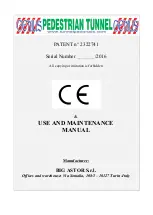
Gas exchange
Respiratory quotient
The ratio between VCO
2
and VO
2
is called the respiratory quotient when measured
in steady state conditions. In steady state conditions, the RQ reflects the mixture of
substrates used by the energy metabolism. The RQ is 1 for carbohydrate, 0.7 for fat,
and approximately 0.81 for protein. Detailed analysis of substrate oxidation requires
measurement of urinary urea excretion for the assessment of protein oxidation and
calculation of the non-protein RQ.
For clinical purposes, major shifts in substrate oxidation are reflected in the total RQ,
as measured directly from the respiratory gases. Increased glucose oxidation may
be observed as an RQ approaching 1, whereas increased fat oxidation may result in
an RQ approaching 0.7.
A steady state RQ above 1 may indicate fat synthesis and is a clinical rarity, associated
with excessive carbohydrate feeding. Even in these conditions, the RQ rarely exceeds
1.3. A steady state RQ below 0.7 is also a rarity, but may occur during ketosis, if the
ketone bodies are incompletely oxidized and excreted into the urine. RQ values
exceeding 1 or below 0.7 should be carefully examined for measurement errors and
the lack of steady state. Typically the most common causes for unphysiological
or erroneous RQ values are changes in ventilation: hyperventilation increases RQ,
hypoventilation decreases it until a new steady state of body CO
2
pool has been
achieved. Analogously, the development of an oxygen debt will increase the RQ,
whereas replenishment of an oxygen debt will reduce the RQ.
Energy expenditure
The energy expenditure cannot be directly measured by indirect calorimetry, but it is
calculated from the measured gas exchange variables.
Resting normal values for VO
2
and VCO
2
vary according to the body size, age, and sex
of the patient. Rough estimates of normal values can be obtained for example by
using the Harris-Benedict formula.
An increase in energy expenditure will be reflected as a proportional increase in
both VO
2
and VCO
2
. Temporary increase of up to 200% can occur due to shivering
and convulsions, for instance. Clinical conditions associated with hypermetabolism,
like injury or sepsis, may increase energy expenditure by up to 50% and in extreme
cases, even up to 100%.
Patients with severe pulmonary pathology and impairment of respiratory mechanics
may have markedly increased work of breathing: the oxygen cost of breathing can
be up to 20% of the whole body VO
2
, whereas it normally represents less than 5% of
the total VO
2
.
Hemodynamic catastrophes, like circulatory collapse, may acutely reduce both VO
2
and VCO
2
, and a compensatory increase can be observed once adequate tissue
perfusion has been restored.
Various factors contribute to energy expenditure:
2062971-001
CARESCAPE Modular Monitors
345
Summary of Contents for CARESCAPE
Page 38: ...38 CARESCAPE Modular Monitors 2062971 001 ...
Page 114: ...Setting up the monitor before use 114 CARESCAPE Modular Monitors 2062971 001 ...
Page 146: ...Alarms 146 CARESCAPE Modular Monitors 2062971 001 ...
Page 218: ...Pulse oximetry 218 CARESCAPE Modular Monitors 2062971 001 ...
Page 234: ...Non invasive blood pressure 234 CARESCAPE Modular Monitors 2062971 001 ...
Page 260: ...Temperature 260 CARESCAPE Modular Monitors 2062971 001 ...
Page 274: ...Cardiac output 274 CARESCAPE Modular Monitors 2062971 001 ...
Page 280: ...Mixed venous oxygen saturation SvO 280 CARESCAPE Modular Monitors 2062971 001 ...
Page 338: ...Patient Spirometry 338 CARESCAPE Modular Monitors 2062971 001 ...
Page 372: ...Neuromuscular transmission 372 CARESCAPE Modular Monitors 2062971 001 ...
Page 404: ...Laboratory data 404 CARESCAPE Modular Monitors 2062971 001 ...
Page 410: ...Calculations 410 CARESCAPE Modular Monitors 2062971 001 ...
Page 416: ...Drug calculations 416 CARESCAPE Modular Monitors 2062971 001 ...
Page 424: ...Trends 424 CARESCAPE Modular Monitors 2062971 001 ...
Page 432: ...Snapshots and events 432 CARESCAPE Modular Monitors 2062971 001 ...
Page 462: ...Cleaning and care 462 CARESCAPE Modular Monitors 2062971 001 ...
Page 528: ...Abbreviations yr year yrs years 528 CARESCAPE Modular Monitors 2062971 001 ...
Page 546: ...Skills checklist 546 CARESCAPE Modular Monitors 2062971 001 ...
Page 547: ...content ...
















































